This 29-Year-Old Man Left His Corporate Job and Cashed Out $400,000 to Sail the World With His Cat
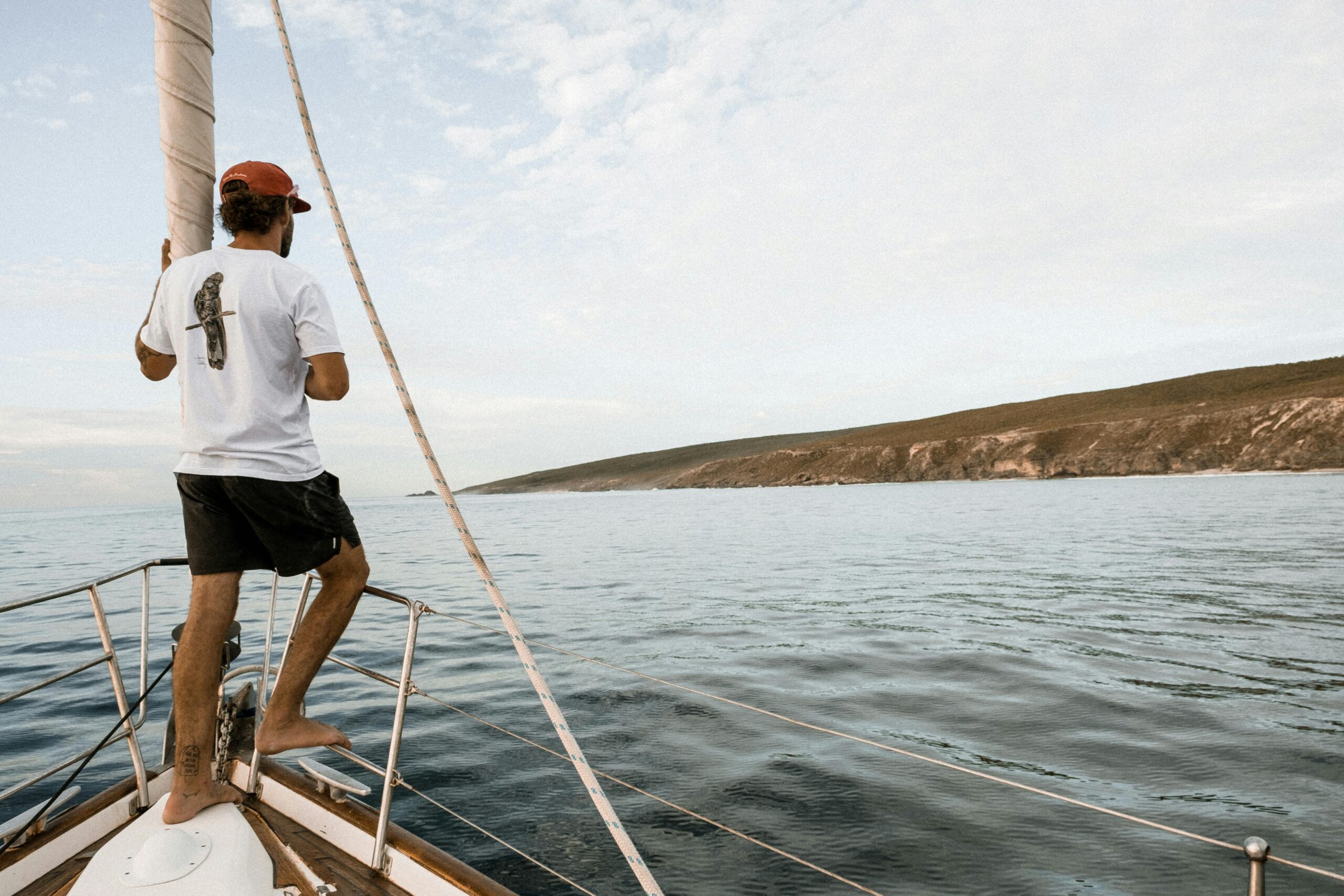
What does freedom look like to you? For some, it’s a steady paycheck, a comfortable home, and the promise of retirement years down the road. For others, that same vision feels less like freedom and more like captivity dressed up in a suit and tie. Studies show that nearly 60 percent of American workers report being disengaged at their jobs, with burnout so widespread the World Health Organization has classified it as an occupational phenomenon. If the majority of people are exhausted, disillusioned, or simply going through the motions, then maybe the so-called safe path isn’t all that safe after all.
That question became painfully real for Oliver Widger, a 29-year-old corporate manager from Oregon who was climbing the ladder, earning six figures, and still felt hollow inside. When a rare spinal diagnosis made him confront the possibility of paralysis, the emptiness of the grind was no longer tolerable. Instead of doubling down on stability, he did the unthinkable cashed out his retirement savings, bought a sailboat he barely knew how to operate, and set off across the Pacific with nothing but determination and a rescue cat named Phoenix by his side.
What happened next was more than a daring voyage. It was a cultural spark, a viral phenomenon, and a mirror held up to a generation questioning whether a life of stability is worth living if it lacks meaning.
When Stability Feels Like Captivity
From the outside, Oliver Widger’s life looked steady maybe even enviable. At 29, he managed a tire company in Oregon, earned a six-figure salary, and seemed well positioned on the corporate ladder. But inside, he felt suffocated. One day, he recorded a blunt video in his car: “I absolutely hate this job.” That raw honesty resonated later with millions, because it captured a sentiment so many hide behind polite smiles and LinkedIn updates.
The reality is that financial stability often doubles as a trap. A steady paycheck becomes a pair of golden handcuffs comfortable enough to keep wearing, but impossible to ignore. Widger described it best: “You can be making $150,000 a year and still feel like you’re just making ends meet.”
GEICO @GEICO ..O JOY you’ve never had a better leading man !!! Oliver Widger is MODERN Cary Grant !!!!! WE LOVE HIM 🌎 … we 🤍 phoenix ! & now his bro📞US for 🎼 to his GLoRIOUS commercial ad ! We are 🏆 winning crew!!💋#Geico & #OliverWidger #itswhatyoudo #whenyouneedus pic.twitter.com/EV1tRXbZoo
— GeneaO (@Geneao) August 4, 2025
His words echoed what surveys confirm. Gallup’s 2024 report found nearly 60 percent of American workers feel disengaged at work. The World Health Organization now formally recognizes burnout as an occupational syndrome. In other words, dissatisfaction is no longer an exception it’s the norm.
For Widger, the breaking point arrived not through boredom but through crisis. Years of persistent neck pain led to a diagnosis of Klippel–Feil syndrome, a rare spinal condition that carries the risk of sudden paralysis. Overnight, the long-term promises of corporate life promotions, pensions, retirement looked hollow. The job he once tolerated became unbearable under the weight of mortality. He began to see stability not as security, but as captivity.
From Crisis to Clarity
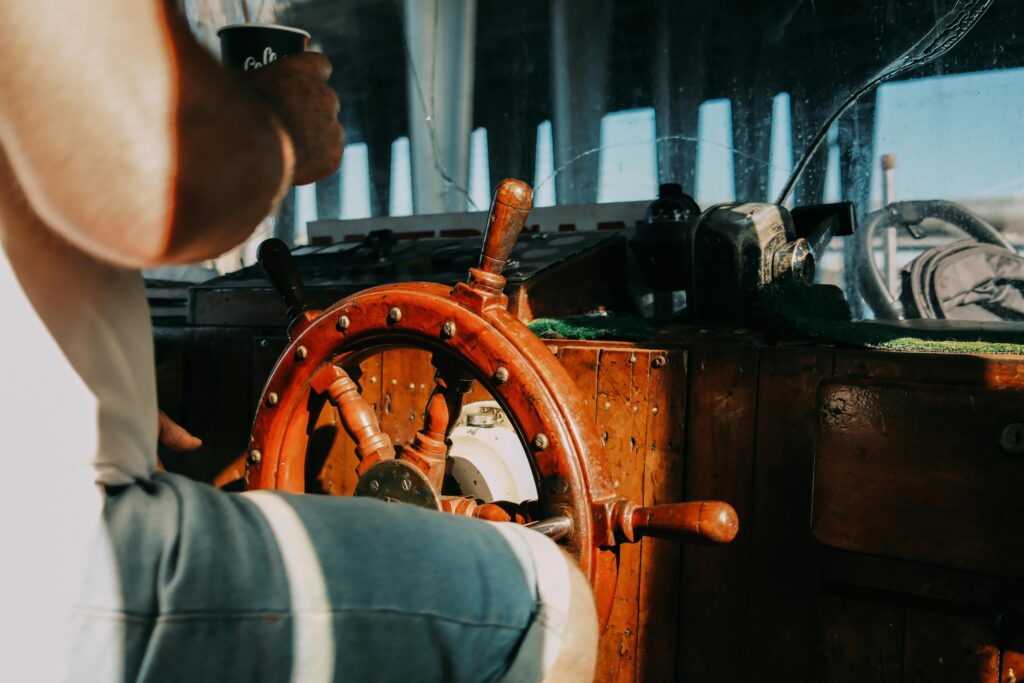
The news of his condition hit Oliver like a storm surge. Klippel–Feil syndrome wasn’t just a medical label it was a ticking reminder that one wrong impact could leave him paralyzed. For weeks, he wrestled with fear and futility. He had spent over a decade climbing a ladder that suddenly seemed meaningless. What was the point of earning more titles, more money, more “success,” if his body could betray him at any moment?
Yet what could have been the end of his story became the beginning of a new one. Psychologists call this kind of transformation post-traumatic growth: the ability to emerge from crisis with renewed purpose and clarity. Research published in the Journal of Traumatic Stress shows that individuals facing major health scares often re-evaluate their values, deepen their appreciation for life, and pursue long-neglected dreams. Widger fit that pattern. Instead of shrinking under the weight of fear, he used it to fuel a bold reimagining of what life could be.
During his recovery, he stumbled upon videos of sailors crossing oceans. Strangers on the internet ordinary people who had chosen wind and waves over offices and deadlines lit a spark in him. If they could do it, why couldn’t he? With each video, the absurd idea of sailing away began to feel less like fantasy and more like necessity.
So he made the kind of decision most people only fantasize about during a bad day at work. He quit his job, liquidated his 401(k) for roughly $400,000, and sold off nearly everything he owned. “Any bad financial decision you could think of, I’ve done it,” he laughed later. But beneath the humor was a deeper truth: safety wasn’t safe if it meant never living.
Building a New Life From Scratch
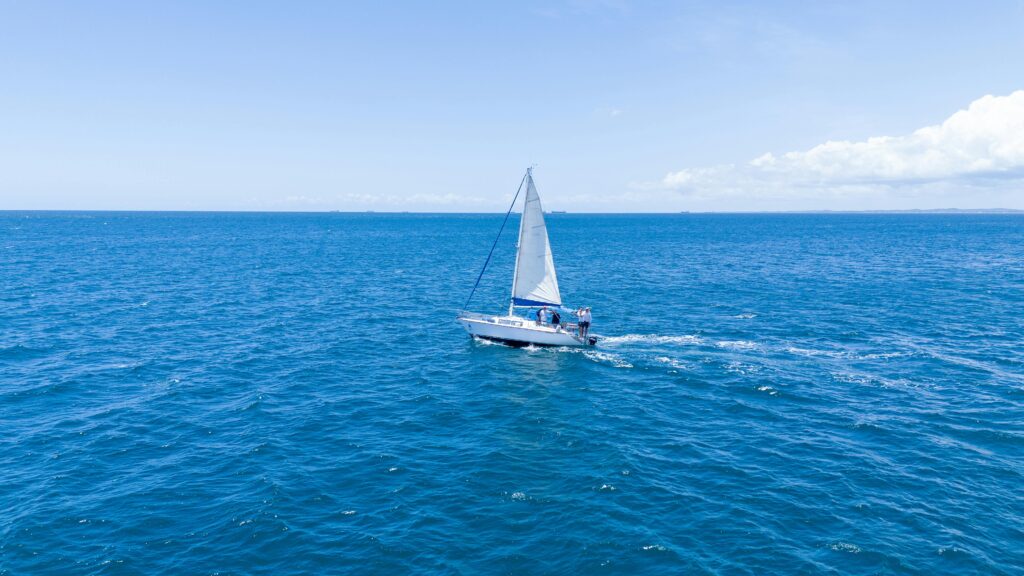
Dreams sound romantic until you realize they require scraped knuckles, sleepless nights, and a tolerance for failure. For Oliver Widger, chasing freedom meant starting from zero. He had never sailed a day in his life, yet he bought a $50,000 boat with his cashed-out retirement savings and committed to transforming it and himself into something seaworthy. His classroom was YouTube. His homework was endless: learning knots, rewiring systems, sanding hulls, patching leaks, and replacing sails. Each task was a lesson in humility and persistence.
He left Portland and moved to the Oregon coast to live closer to the water. There, the marina became both workshop and proving ground. Every bolt tightened and every line replaced was more than maintenance it was him literally building the vessel that would carry him away from the old life he had abandoned. For a man who had once managed corporate meetings and sales targets, this hands-on reinvention was as symbolic as it was practical.
Through it all, one companion was always by his side: Phoenix. She was no stranger to resilience herself, having been rescued from a dumpster years earlier. On land she was a typical house cat, but on the boat she became something more an agile, unflappable first mate. Widger marveled at how she adjusted to the rocking decks, moving with the grace of a seasoned sailor. “She gets around the boat better than I do,” he admitted. Her presence gave comfort during long, solitary days of preparation and reminded him that companionship can make even the most uncertain journeys bearable.
Riding the Storms, Chasing the Sunsets
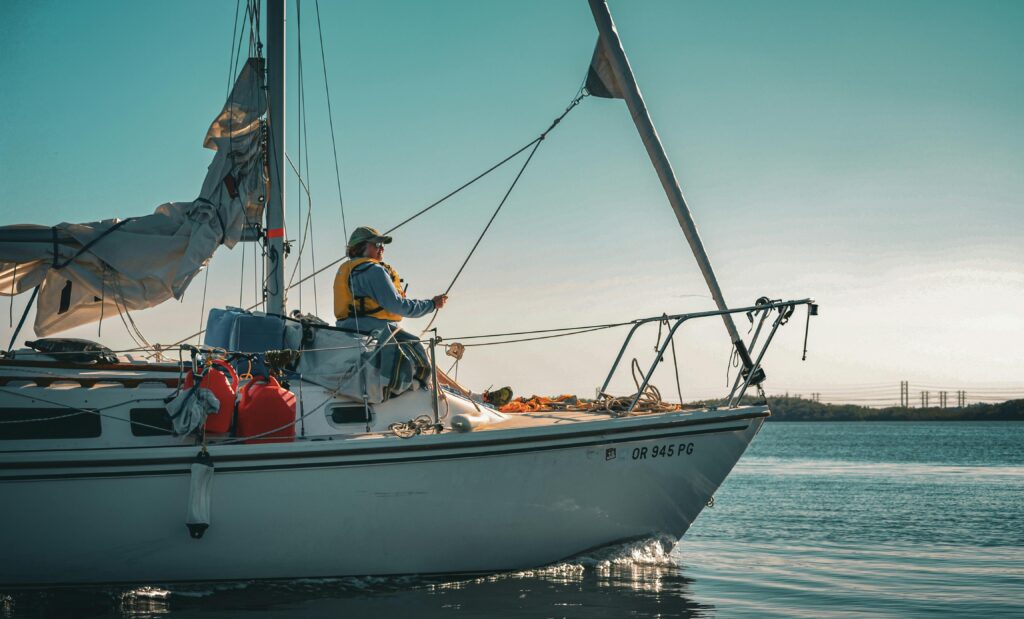
The Pacific does not welcome beginners kindly. Within days of leaving Oregon, Oliver Widger learned that the sea tests you in ways no textbook or YouTube tutorial can prepare you for. Storms rolled in, battering his boat with relentless waves. The rudder his lifeline for steering snapped, leaving him adrift and scrambling to improvise repairs as the vessel rocked violently every thirty seconds. He described it later as being trapped “in an airplane with violent turbulence and the windows rolled down.” It was raw survival, the kind of fear that strips life down to instinct.
But amid the chaos were moments of astonishing beauty. Dolphins danced alongside his boat, weaving in and out of the surf as if to remind him he wasn’t entirely alone. Whales surfaced in the distance, ancient silhouettes against the horizon. On rare, still days, the ocean transformed into glass, reflecting the sky so perfectly that he felt suspended between two infinities. “Being in the middle of the ocean when it was completely glass in every direction was an absurd feeling,” he recalled. Those moments of awe balanced the terror, convincing him the risk was worth it.
Even Phoenix, his feline first mate, adapted without complaint. She padded across the deck with uncanny balance, curling up beside him during storms and turning the boat into a home rather than a vessel of isolation. Her steady presence became a quiet reminder of resilience life adjusting, even thriving, in the most unlikely circumstances.
Through it all, Widger was never truly disconnected. Thanks to satellite internet, he shared updates with friends and an ever-growing online audience. His videos, raw and unpolished, showed not just sunsets and dolphins but fear, seasickness, and breakdowns. He wasn’t performing adventure; he was living it in real time, with the world watching.
When the World Started Watching
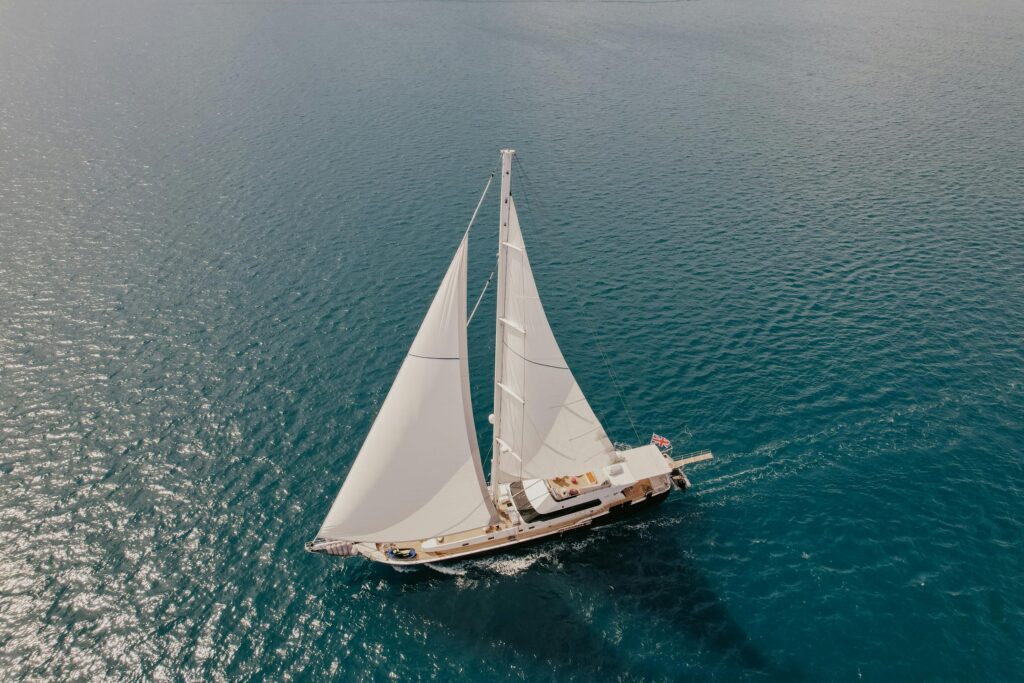
By the time Oliver Widger set foot in Hawaii, he was no longer just a man who had crossed an ocean with his cat he was a global sensation. His arrival at the Waikiki Yacht Club was met with cheering fans, flashing cameras, and even a proclamation from Hawaii’s Governor Josh Green. The contrast couldn’t have been sharper: weeks earlier, he had been alone in the middle of the Pacific, clinging to a wrench in the darkness of a storm. Now, he was greeted like a hero.
What set his story apart from the curated feeds of travel influencers was its rawness. Widger’s updates weren’t polished highlight reels. They were shaky videos filmed in the middle of seasickness, voice notes recorded in exhaustion, confessions muttered into the camera as waves crashed around him. The world didn’t just see his triumphs they saw his fear, his breakdowns, his unfiltered humanity. That vulnerability struck a chord in a digital culture saturated with perfection.
By the end of his 24-day voyage, his social media accounts had exploded. More than a million people followed him on TikTok, while Instagram pushed past 1.7 million. His boat became a stage, and his cat Phoenix, with her uncanny balance and calm demeanor, a beloved co-star. Fans didn’t just watch; they cheered, commented, and invested themselves in his journey. Some even said his courage gave them the push to re-examine their own lives.
Life After the Horizon
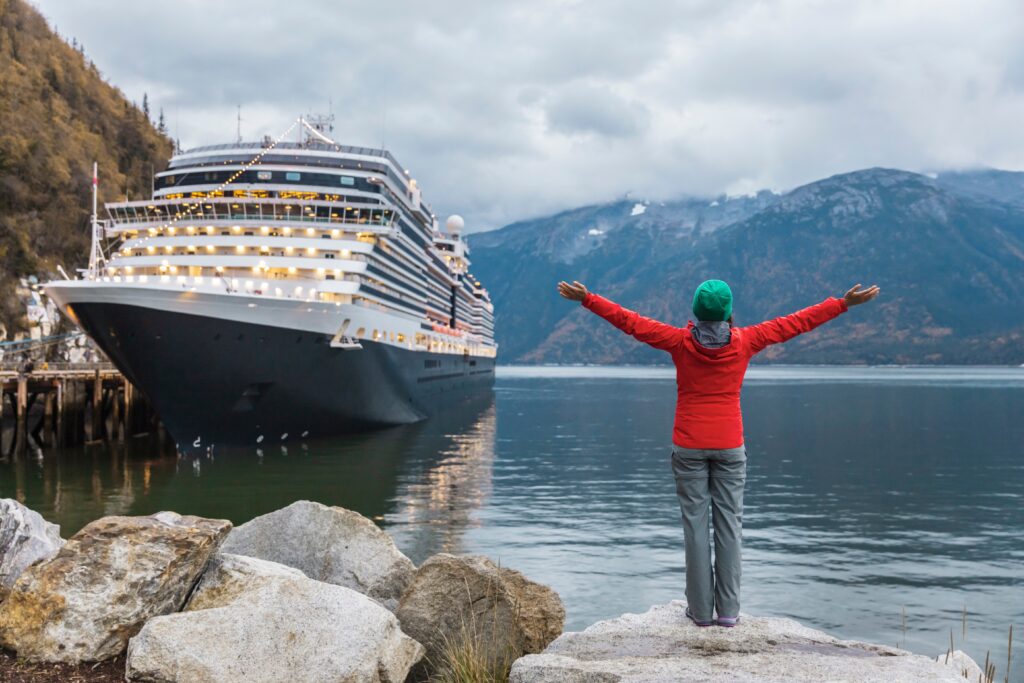
When the cameras dimmed and the crowds dispersed, Oliver Widger found himself facing a different kind of test. The ocean had demanded endurance, but life on land brought its own complications. His boat, battered from weeks at sea, needed urgent repairs. The rudder that had failed mid-journey wasn’t the only problem wear and tear touched nearly every corner of the vessel. Sailing on to French Polynesia, his next dream, would require both time and money.
Then there was the matter of sudden fame. What began as a personal rebellion had transformed into a global stage. Millions now followed Sailing with Phoenix, waiting for updates, cheering him on, and expecting new chapters of adventure. Widger admitted he hadn’t planned that far ahead his focus had been on reaching Hawaii, not on building a brand. Yet overnight, he had become a creator with an audience as large as that of a television network. Every video of sunsets and storms came with hours of unseen work: editing footage, managing comments, and finding ways to stay authentic while under a spotlight.
The irony was sharp. In leaving his corporate job, Widger had broken free of deadlines, meetings, and expectations. Now he faced a different set of pressures: keeping his boat afloat, funding the journey, and feeding an audience that wanted more. Freedom, it turned out, didn’t mean the absence of responsibility. It meant choosing a responsibility worth carrying.
Still, he refused to see this as a burden. The Pacific crossing had taught him that survival is never clean, and purpose rarely arrives fully formed. If the first leg of his voyage was about escaping a life that drained him, the next leg would be about shaping a life that sustained him. The ocean was no longer just a dream. It was a path forward, even if it demanded as much grit on shore as it did at sea.
Why His Story Resonates
I Made Peace With Being Broke — And It Solved All My Problems | Oliver Widger quit his job to sail the world with his cat Phoenix
— Lewis Howes (@LewisHowes) June 18, 2025
Catch his inspiring story on The School of Greatness pic.twitter.com/eKwM3lcBck
The statistics tell part of the story. Nearly six in ten workers in the U.S. report feeling disengaged at their jobs, according to Gallup. The World Health Organization now officially classifies burnout as a workplace syndrome. Wages have stagnated for decades when adjusted for inflation, while the cost of housing, healthcare, and education continues to rise. Against that backdrop, it’s no wonder so many people watch someone like Widger and think, He did what I wish I could do.
Psychologists have a name for this impulse: “existential migration.” Coined by researcher Greg Madison, the term describes the pull some individuals feel to leave behind familiar routines in search of authenticity and freedom. Widger’s leap across the Pacific fits this mold perfectly his departure was less about sailing and more about stripping away illusions of stability to chase a life that felt real.
The fact that millions followed his journey online underscores how much his rebellion resonated. His videos weren’t glossy advertisements for an alternative lifestyle; they were messy, honest, and often terrifying. That authenticity set him apart from the curated escapism of digital nomads or van-life influencers. Viewers didn’t just admire his sunsets they saw his seasickness, his panic, his breakdowns, and his persistence. In those moments, he became less of an influencer and more of a stand-in for a generation wrestling with the question: Is this all there is?
Widger’s voyage reminds us that the hunger for freedom isn’t rare it’s repressed. Most people will never cash out their savings to cross an ocean, but his story forces us to confront the quiet dissatisfaction that makes the idea so appealing. It isn’t about boats or cats or tropical destinations. It’s about the courage to admit that stability without meaning isn’t enough.
Choosing Your Own Ocean

Oliver Widger’s story is not an instruction manual. Most people won’t cash out their savings, buy a boat, and sail into storms with a cat. But that was never the point. The real lesson lies in the courage it took to look at a life that felt safe yet hollow, and to walk away in search of something more.
When he said, “Everything I’ve done, I once thought was impossible,” he wasn’t just talking about sailing across the Pacific. He was speaking to the universal truth that possibility expands only when we dare to test it. His journey reminds us that the greatest risks aren’t always out on the open ocean they are in the choices we avoid, the dreams we postpone, and the routines we convince ourselves we can’t escape.
The question his voyage leaves behind is simple but inescapable: if you were forced to confront the fragility of your life tomorrow, what would you regret never attempting today? Your ocean may not be thousands of miles of open water. It might be a neglected passion, a career shift, a relationship waiting for honesty, or a bold step toward living with purpose.
Stability will always have its allure. But meaning asks for something harder bravery. Widger’s leap shows us that sometimes the most dangerous choice is not risking too much, but risking too little.
Loading...

